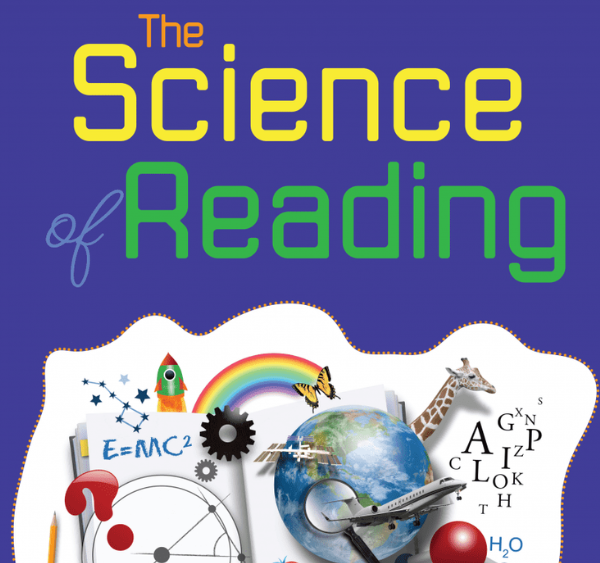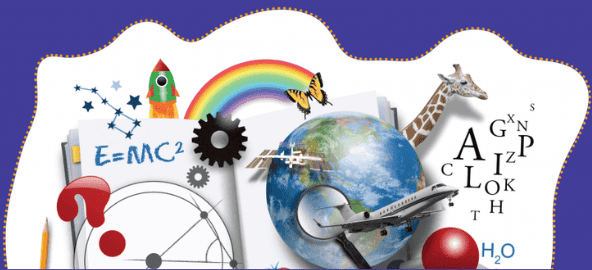The Science of Reading

“Learning to read” and “reading to learn” are phrases that we have heard for a very long time in education and publicly when discussing reading. However, as with everything, the basics behind the reading process are what is so important to know and understand. In the last couple of years, we have looked for details behind the science. I am happy to report that finally those in the field of education are now learning more about the science of reading. So, what does that mean anyway? Let’s discuss the cognitive skills behind the reading process and why reading is not a natural phenomenon but rather a learned skill that quantifies the ability of the reader. Since reading affects every aspect of our lives each day, it is a necessary skill for survival. Now, let’s dive into the science.
The Cognitive Skills of Reading
A letter is a symbol that represents a sound. When certain symbols (letters) are combined or arranged into a specific code, it represents other sounds. Spoken word evokes a picture in the brain which allows meaning to be attached to that word. For super ease of expression, we are going to use the word CAT. When someone says the word cat, we can picture a cat in our brain. Perhaps you do not realize the cat you picture is the one you most recently and most often linked with that word. Your spouse, child, student, or friend would likely describe the word cat quite differently that you do based on their own “schema” or memory experiences with the word/animal cat.
What Happens in Your Brain
The more experiences and touchpoints to the word cat, the bigger your brain memory file is on that particular word. This also increases the adaptability you have to accept new concepts or links to that word. And this is all just when someone says the word. This pictorial representation of the word cat happens in the visual processing part of the brain. Those that are weak in this cognitive skill may struggle to connect the word to the pictorial representation. This can happen for students with visual processing issues such as visual dyslexia; traumatic brain injury due to illnesses such as COVID and PANDAS; or brain trauma from accidents, strokes, dementia, and other circumstances.
The speed at which one processes this information is also a critical cognitive skill skill that affects thinking and reading. If the uplink to processing is slowed by trauma, damage, or weakness; this affects the overall function. When someone speaks a word to us, we must use a minimum of 4-5 cognitive skills to process that word for meaning. That is before we add the complexity of the reading code in the English language.
Let’s Dive Deeper into the Complexity of Reading
The letter C doesn’t say C like an S when it is read but rather “c” like a k. The letter A in the word cat doesn’t say A like its symbol name either instead is says a short vowel sound “a”. Finally, we have the T that thankfully says “t” like the beginning of its name. WOW! That’s a lot for a three-letter word. Then one must blend the sounds together and link them in an orthographic picture to associate with the creature that has four legs, a tail, meows, and usually lives in a home with humans. But I digress. I wanted you to understand that the process of reading has no simplicity to it at all but rather is a complex process of coding like a computer must code the words I type.
Teaching Reading
Let’s simplify this discussion and get back to the science. With a plethora of research over the last 20 plus years, educators and cognitive scientists have discovered that there are many types of learning issues involved in the process of reading. The best way to teach reading is through a direct, systematic, structured approach that includes phonemic awareness, phonics, spelling, and high-frequency words that follow exceptions to the code patterns. In 1986, Gough & Tunmer put reading into a simple formula view: D (decoding) x LC (linguistic comprehension) = RC (reading comprehension).
For simplicity, teaching explicitly to decode multiplied with linguistic comprehension weaves together into a strong ability to read. Decoding includes teaching phonological awareness, letter-sound correspondence, and sight recognition. Linguistic comprehension refers to background knowledge, vocabulary, language structure, verbal reasoning, and literacy knowledge. Reading comprehension refers to understanding the meaning of the actual words on the page. So this is why the cognitive skill function is critical to the process.
The Issues Learners Face
Struggling with memory means you cannot hold onto the codes and complexities. Issues with processing speed affect how fast a person thinks. This means they cannot process the different parts of the word efficiently. A person struggling with auditory processing will not be able to connect the code correctly to the sound. If we struggle with visual processing, then we are challenged with linking the spelling of the word to the sounds and/or pictorial meaning. Anyone with attention problems will have challenges with the entire reading process.
The Importance of Cognitive Testing
It is critical that we know how our brains and our cognitive skills are functioning. This is why cognitive testing is important at an early age. We can test regularly to monitor any changes. It is easy as a parent to understand the concept of getting our eyes and teeth checked. Why is it any different when it comes to our brains? Intervention is possible and is so effective with brain training at any age. The younger you start testing, the less of a struggle the student goes through. It is always easier to teach something right the first time than to retrain and unlearn compensatory skills. Brain training is truly life-changing for many. Reading is a process, but we can learn at any age. With proper intervention, you can open up a life of adventures and possibilities.
For more information about cognitive brain training: contact LearningRx Shreveport-Bossier by calling 318.797.8523 or emailing shreveport.la@learningrx.net. You can also learn more on our main website at Get Started.
Previously published in LOLA magazine and The Collective by Donesa Walker. I have made some changes to make the article more blog friendly.







